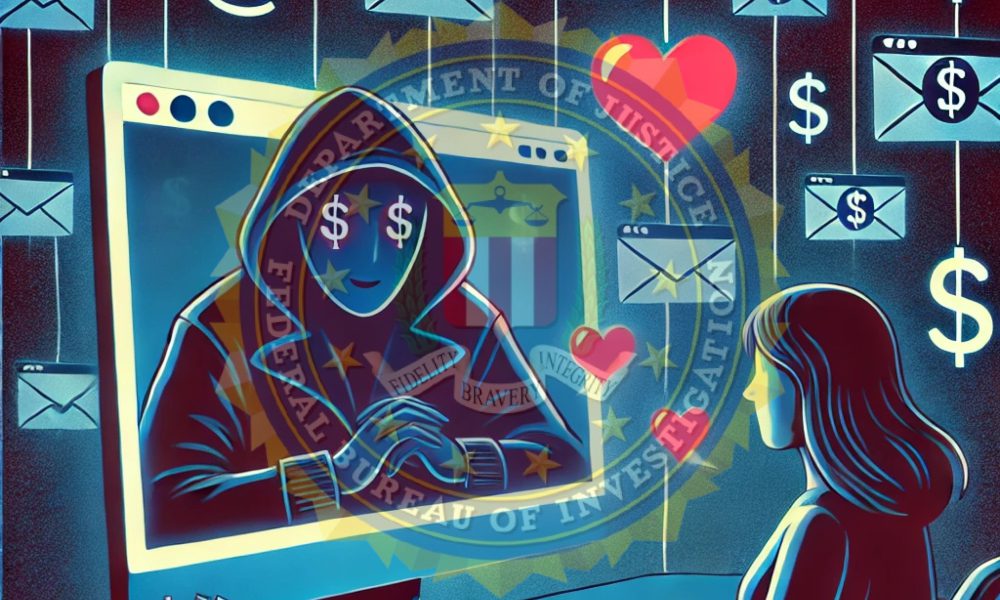WASHINGTON: The FBI has issued a warning about online romance scams targeting unsuspecting victims. These scams involve criminals who create fake identities to gain trust. Once trust is established, scammers manipulate victims for financial gain. They use emotional tactics to deceive individuals into sending money. Victims often believe they are in a real relationship.
Deceptive Tactics
Romance scammers move quickly to create an emotional connection. They shower victims with affection and gain their trust fast. Scammers often propose marriage or make fake plans to meet in person. However, these meetings never happen, leaving victims heartbroken. Eventually, they ask for money using different excuses.
The scammers are highly skilled at deception, making them appear real. They often seem caring, genuine, and completely trustworthy. Most operate on dating platforms and social media sites. Their goal is to manipulate victims into sending funds. They create fake stories to justify financial requests.
Common Scenarios
Scammers frequently claim to work in construction or engineering. They pretend to be on overseas projects to avoid in-person meetings. This excuse makes it easier to request financial assistance. They may claim they need money for medical emergencies. Others request funds for legal fees or unexpected expenses.
Some fraudsters ask for victims’ banking details. They claim they need to deposit money into the victim’s account. In reality, they use these accounts for fraudulent activities. Victims unknowingly become part of criminal schemes. This can result in serious legal and financial consequences.
Warning Signs
Scammers often use publicly available information to target victims. Social media posts help them learn about potential victims. They use this information to make their stories believable. Individuals should be cautious about what they share online. The more personal details scammers find, the easier it is to deceive.
A key warning sign is an overly perfect persona. Scammers create fake profiles with attractive photos and details. They may ask victims to move conversations off dating platforms. This reduces the chances of their accounts being flagged. Victims should be cautious of anyone pushing for private communication.
How to Stay Safe
Conduct online searches using profile pictures and names. This helps verify if their details have been used before. Asking plenty of questions can also expose inconsistencies. Scammers struggle to maintain a consistent backstory. Their responses often seem scripted or vague.
Beware of anyone who wants to isolate you from family and friends. Fraudsters may discourage victims from seeking advice. They also request personal photos or financial details for blackmail. Such behavior should raise immediate red flags.
Meeting Avoidance
If someone repeatedly cancels plans to meet, be cautious. Scammers always have excuses to avoid face-to-face contact. They may promise visits but never follow through. If months pass without a meeting, suspicion is warranted. Most legitimate relationships involve in-person interactions.
One major red flag is any request for money. No matter how convincing the story, never send funds. Scammers prey on emotions to exploit their targets financially. If you have never met them, do not provide financial support. It is a common tactic used in fraud cases.
Protect Yourself
Be mindful of what you share on social media. Scammers gather personal information to use in deception. Limit what is publicly available to minimize risks. Adjusting privacy settings can help prevent unauthorized access. Keeping personal details private adds an extra layer of security.
Verifying someone’s identity is crucial before forming attachments. Cross-check their information using search engines. Look for duplicate profiles or inconsistencies in their story. Scammers often reuse images and names across platforms. A little research can prevent emotional and financial damage.
Conclusion
The FBI continues to warn against the dangers of romance scams. These scams result in emotional distress and financial loss. By staying vigilant, individuals can protect themselves from fraud. Never send money or share banking details with online strangers. Awareness is key to preventing deception.












